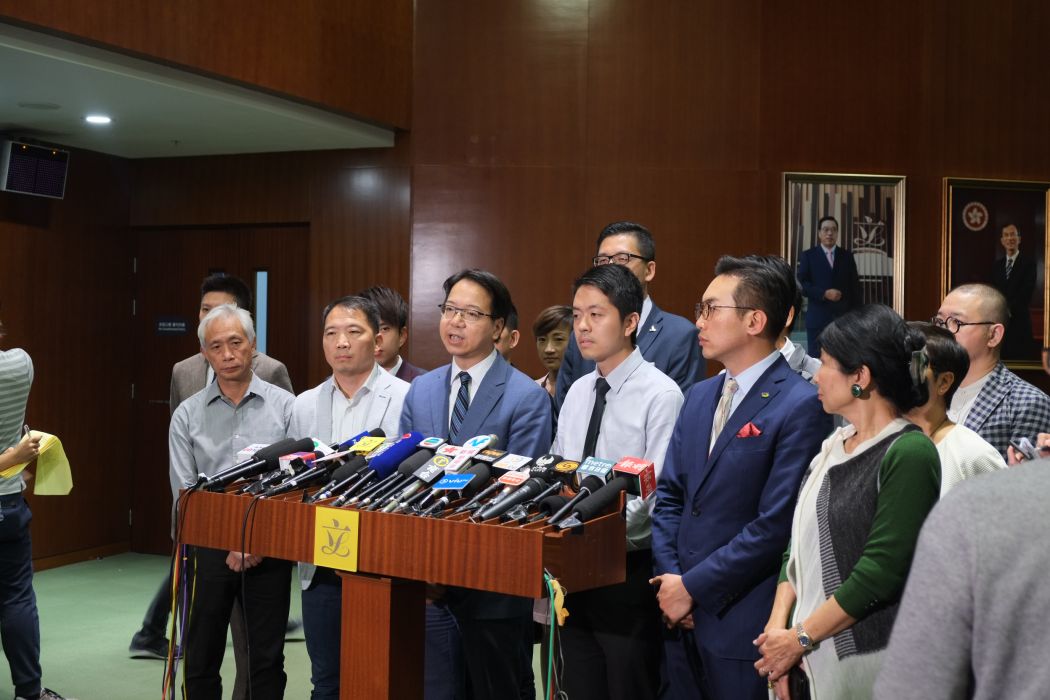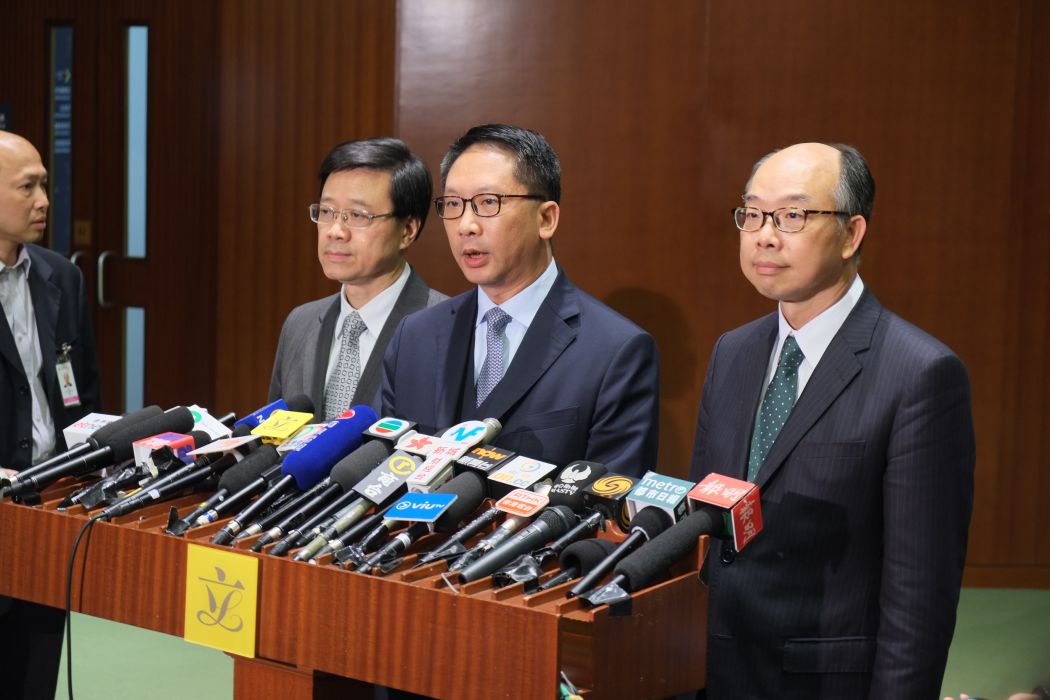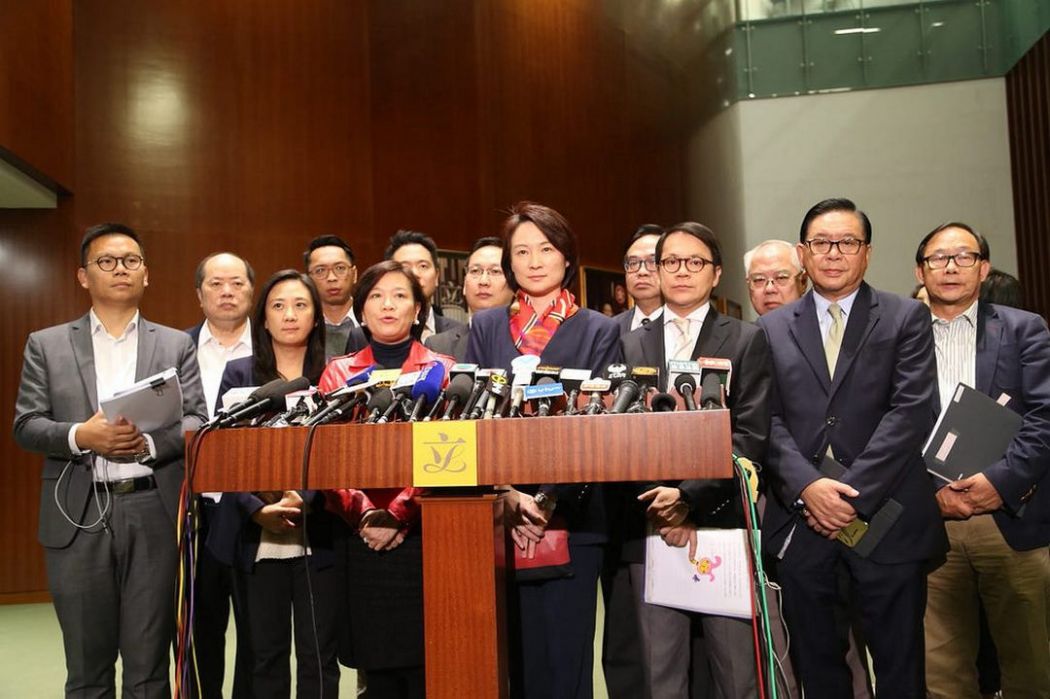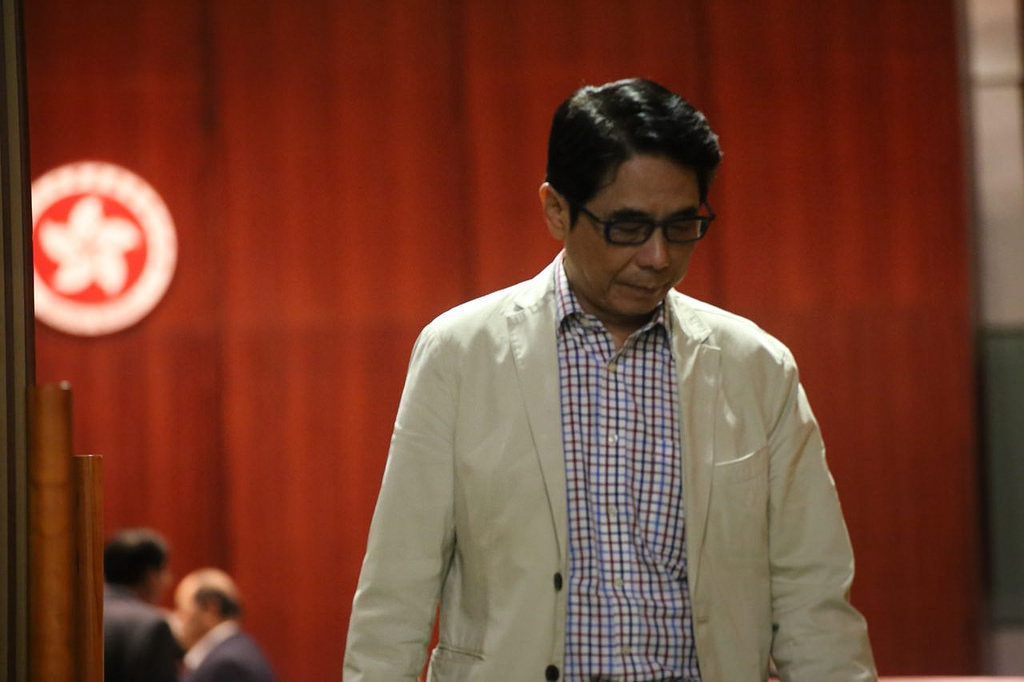The pro-democracy camp enjoyed a small victory on Friday as a Legislative Council debate on the controversial joint checkpoint arrangement was adjourned following an unprecedented filibustering effort.
The non-binding motion debate will resume on November 15, as the legislature is now scheduled to debate a motion of thanks relating to Chief Executive Carrie Lam’s first policy address.
Earlier on Thursday, in a last-ditch attempt to stall proceedings, lawmaker Eddie Chu cited the Rules of Procedure 88 (1) to demand a debate over asking the media and public leave the Legislative Council chamber. The Pro-Beijing camp criticised his move as “hideous.” The rule had never been used before.

By 5:15pm, the LegCo president Andrew Leung decided to end Chu’s debate within 30 minutes, saying he had to balance the LegCo’s time with lawmakers’ right to speak. Democratic Party lawmaker Roy Kwong then raised a motion to suspend Chu’s debate but was rejected.
Kwong’s party colleague Ted Hui protested Leung’s decision but was told to leave the chamber. Leung suspended the meeting as pro-democracy lawmakers protected Hui from being removed.

The meeting was resumed at around 6:50pm, but pro-democracy lawmakers were still surrounding Hui to protect him. Leung had to announce that the meeting was adjourned, as it could not continue.
Although the motion is non-binding, and thus not officially required, the government sought to pass the motion before launching a three-step procedure to kickstart approval for the Guangzhou-Shenzhen-Hong Kong Express Rail Link border mechanism.
The three-step process involves: reaching an agreement with mainland authorities; seeking approval from the Standing Committee of the National People’s Congress to give Hong Kong power to “lease” land; and then enacting the arrangement through local legislation. Pro-democracy groups and scholars have raised concerns over what they call a ceding of territory to China and potential violations of the Basic Law. Part of the station in West Kowloon – set to open next year – will be considered part of the mainland under the agreement.
Suspension inevitable
Democratic Party lawmaker Andrew Wan claimed that Leung had made a deal with the government to cut short the meeting, since he realised the pro-democracy camp would force him to suspend the meeting repeatedly, without achieving any results by Thursday.
Pro-Beijing lawmaker Horace Cheung also said it was not an option for the meeting to carry on in another conference room, in order to bar Hui from joining the meeting. “How many [others] can you bar?… They have said they will stop us from carrying on with the meeting,” he said.

But Andrew Leung denied making any such deal. He said it will take more than an hour to prepare another room and it would be around 8pm before it would be ready: “Objectively, lawmakers want to stall the meeting – so I think we should take some rest,” he said.
Leung said earlier on Thursday that he expected the meeting to go on until 10pm and proceed to a vote, before Chu made his unprecedented move. But he said the pro-democracy camp’s move was “within calculation.”
“There was no sudden ruling that I did not expect beforehand,” he said.
Pro-democracy lawmaker Tanya Chan said Leung was abusing his power in his effort to cut short the debate: “Even the pro-Beijing camp should understand their right to speak should not be stripped away.”
Leung denied the allegation, claiming that – if he was abusing his power – he could have simply stopped the democrats’ unusual filibustering efforts, but he did not.

In order for the non-binding motion to be debated earlier, the government suspended discussion of two bills, including a stamp duty bill to control the housing market, and another bill for district council amendments. However, the democrats still managed to delay the motion debate for a week using a seldom-used tactic.
Chief Executive Carrie Lam had warned that the government would not rule out simultaneously conducting the three-step process for approving the arrangement, should the legislature be unable to pass a motion on the mechanism in time.
‘Completely unnecessary’
Pro-democracy camp convener Charles Mok said the camp will adopt all possible means to protest the joint checkpoint debate: “The government should consider retracting the motion, or start a public consultation.”
Tanya Chan said Lam may push forward with the three step process simultaneously, but it was not the pro-democracy camp’s fault: “Your motion is completely unnecessary – it was you who forced it upon us.”

Secretary for Justice Rimsky Yuen said he was disappointed that there was a “clear abuse” of the legislature’s rules, as the LegCo had spent over 37 hours on the motion.
He did not clearly state whether the three-step process would start anyway: “We don’t want to see a situation that we start the three-step process before passing the motion debate.”

“We came to the Legislative Council because we respect it. But if lawmakers use all means to stall the process, we have to take care of Hong Kong’s interests as a whole.”
Pro-Beijing FTU lawmaker Wong Kwok-kin said he was disappointed with the situation.

“Normally, we would vote on the motion tonight – but because of abuse of the rules of procedures, we can’t even continue,” he said. “It shows that it is necessary to change rules – if this continues, the legislature cannot carry on.”
